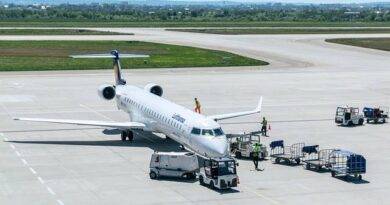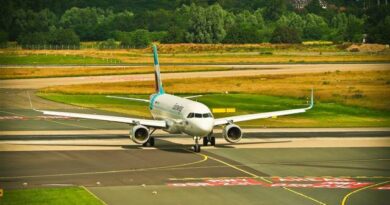Artificial Intelligence can Help Pilots in the Near Future
Artificial Intelligence (AI) has been revolutionizing various industries, and aviation is no exception. With advancements in technology, AI is increasingly being integrated into aircraft systems to assist pilots in making critical decisions and enhancing overall flight safety. In the near future, AI has the potential to play a significant role in supporting pilots in multiple ways, from pre-flight preparations to in-flight operations, and even post-flight analysis.
Flight Planning
One of the key areas where AI can assist pilots is in the realm of flight planning. AI algorithms can analyze a vast amount of data, including weather patterns, air traffic, and aircraft performance parameters, to generate optimized flight routes. These routes can take into account fuel efficiency, time savings, and minimizing turbulence, resulting in more efficient flight plans. Additionally, AI-powered algorithms can continuously monitor weather changes and update the flight route in real-time, enabling pilots to make informed decisions and avoid adverse weather conditions, thereby enhancing flight safety.
Monitoring and Managing Various Aspects
During the flight, AI can aid pilots in monitoring and managing various aspects of the aircraft’s performance. AI-based predictive maintenance systems can analyze sensor data and detect potential equipment failures, allowing pilots to proactively address any maintenance issues and avoid unexpected in-flight failures. Furthermore, AI algorithms can monitor the aircraft’s fuel consumption, optimizing fuel usage and reducing operating costs. AI can also assist pilots in managing the aircraft’s systems, such as autopilot and navigation, making operations more efficient and reducing pilot workload.
Decision-Support Tool
In critical situations, AI can serve as a valuable decision-support tool for pilots. For example, in the event of an emergency, AI-powered systems can quickly analyze the situation and provide recommendations to pilots, helping them make rapid and informed decisions. AI can also assist pilots in identifying and mitigating potential safety risks, such as detecting other aircraft in the vicinity, monitoring the aircraft’s speed, altitude, and trajectory, and providing warnings to avoid potential collisions.
Post-Flight Analysis
Post-flight analysis is another area where AI can provide valuable insights for pilots. AI algorithms can analyze flight data, including sensor data, voice recordings, and other relevant information, to identify patterns, trends, and potential areas of improvement. This analysis can help pilots and aviation authorities identify any deviations from standard operating procedures, identify potential training needs, and improve overall flight safety measures.
Several examples of AI applications in aviation are already being developed and tested. For instance, Airbus has been working on an AI-powered “Virtual Assistant” called “Airbus’ Advanced Experiences” (A³EX), which uses natural language processing and machine learning to assist pilots in performing tasks such as filing flight plans, calculating takeoff and landing performance, and monitoring systems. Another example is the collaboration between Boeing and SparkCognition, which aims to develop AI-powered systems to optimize maintenance operations and improve aircraft reliability.

Concerns
As with any technological advancement, there are concerns about the integration of AI in aviation. One of the primary concerns is the potential for overreliance on AI systems, which may lead to complacency among pilots and reduced manual flying skills. It is essential to strike a balance between human expertise and AI assistance to ensure that pilots maintain their critical decision-making abilities and situational awareness.
In conclusion, the integration of AI in aviation has the potential to significantly enhance flight safety and efficiency in the near future. From flight planning to in-flight operations and post-flight analysis, AI can assist pilots in making informed decisions, optimizing aircraft performance, and identifying potential safety risks. However, it is crucial to strike a balance between human expertise and AI assistance to ensure that pilots remain proficient in their skills. As technology continues to evolve, the future of aviation looks promising with the potential of AI as a valuable tool for pilots.
References:
- “Artificial intelligence could help pilots navigate turbulence.” MIT News, 2019. [Online]. Available: https://news.mit.edu/2019/artificial-intelligence-help-pilots-navigate-turbulence-0311
- “Airbus’ Advanced Experiences (A³EX) – The Next Step in Human-AI Interaction.” Airbus, 2021. [Online]. Available: https://www.airbus.com/a3-experiences/airbus-advanced-experiences.html
- “Boeing and SparkCognition to Shape the Future of Travel and Transport with Artificial Intelligence.” Boeing, 2019. [Online]. Available: https://boeing.mediaroom.com/2019-08-08-Boeing-and-SparkCognition-to-Shape-the-Future-of-Travel-and-Transport-with-Artificial-Intelligence
- “Artificial Intelligence in Aviation: Opportunities and Challenges.” International Air Transport Association (IATA), 2020. [Online]. Available: https://www.iata.org/contentassets/f285f336c066443bb49fb0905b1d40ab/ai-aviation-opportunities-challenges.pdf
- “Artificial Intelligence and Machine Learning in Aerospace and Defense: Market Outlook and Forecasts 2021 – 2026.” MarketsandMarkets, 2021. [Online]. Available: https://www.marketsandmarkets.com/Market-Reports/ai-machine-learning-in-aerospace-defense-market-109046874.html
- “Artificial Intelligence: The Next Revolution in Aviation.” Deloitte, 2019. [Online]. Available: https://www2.deloitte.com/content/dam/Deloitte/us/Documents/process-and-operations/us-ai-in-aviation.pdf
- “Airbus reveals AI assistant for pilots at Farnborough Airshow.” FlightGlobal, 2018. [Online]. Available: https://www.flightglobal.com/news/articles/airbus-reveals-ai-assistant-for-pilots-at-farnborough-449149/


